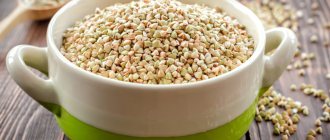Optimum Nutrition's Glutamine Powder supplement is an innovative sports nutrition product. The main active ingredient is glutamine. This is the most important amino acid for athletes. Without glutamine, normal synthesis of glycogen and protein is impossible. The first is the main component of muscle fibers and accounts for about 60% of the total volume. This makes this amino acid indispensable for athletes. The need for glutamine is not limited to improving anabolic processes. It is necessary to normalize nitrogen metabolism, stimulate brain activity, remove toxins, and combat catabolic processes.
Glutamine - What is it? How and when to take?
Novice athletes are often wary of sports nutrition, confusing nutritional supplements with pharmacological drugs used by experienced and professional bodybuilders. In fact, you shouldn’t be afraid of sports nutrition - all supplements and concentrates consist of the same natural substances as regular human food and will not harm the body. The difference between sports nutrition and regular food is the concentration of nutrients. This allows the supplements to be absorbed faster and more completely. In this case, the body does not need to spend additional energy on digestion. However, beginners should understand that sports supplements are just an addition to an athlete’s diet, and they do not work on their own without regular training and a special sports diet.
L-glutamine price
You can order the supplement in an online store or purchase it at a pharmacy. Its cost depends on the form of release, packaging (number of capsules or weight), manufacturer rating, and other factors. The approximate price range is presented in the table:
| Name | Price in rubles |
| Powder | |
| 300 g | 950-1500 |
| 500 g | 1450-1770 |
| 600 g | 2000-2200 |
| Capsules | |
| 300 pcs. | 1890-2265 |
| 120 pcs. | 950-1130 |
| 60 pcs. | 600-750 |
What is glutamine?
Protein is made up of various amino acids that are formed when broken down by enzymes in the gastrointestinal tract and absorbed into the bloodstream for use by muscles and other tissues of the body. The body needs 22 amino acids to function. They can connect to each other using peptide bonds, forming proteins necessary for the growth and repair of muscle fibers.
As for glutamine, it is classified as a conditionally essential amino acid. They are called essential because they are partially produced by the body, but under certain conditions they may not be sufficient. The lack of amino acids can be replenished with protein foods and/or sports supplements. Large amounts of glutamine are found in fish, meat and dairy products (cheese, cottage cheese). Plant sources of glutamine include beets, beans, cabbage and peas.
Glutamine is the most abundant amino acid in the body, and most of it (about 60%) is stored in the muscles, which explains the widespread use of this supplement in sports and bodybuilding. In addition, this amino acid is found in the brain, lungs and liver. Glutamine helps normalize the digestive system and increases the activity of protein synthesis. In addition, glutamine protects liver cells from toxins and removes ammonia, which is formed due to increased protein consumption. Glutamine takes part in the formation of glutathione, which is one of the most powerful antioxidants in the human body.
Main effects of glutamine
— Participation in protein synthesis — Suppression of cortisol secretion (Anti-catabolic effect) — Reducing the risk of overtraining — Stimulating glycogen production — Strengthening the immune system — Enhancing the production of your own growth hormone Let's take a closer look at the above effects of glutamine: As a result of intense physical activity or prolonged stress, glutamine reserves in the muscles are reduced , which increases the risk of breakdown and loss of muscle tissue. Additional consumption of glutamine will prevent this process. Glutamine is especially good at helping relieve muscle pain after workouts. Glutamine also promotes the production of glycogen, which allows you to retain energy for training for a longer time. There is debate about the effect of glutamine on glycogen levels. Some scientists note that glutamine stimulates the production of glycogen, while others believe that it prevents breakdown. However, there is research data that shows higher muscle glycogen concentrations with glutamine supplementation than without it. In addition, glutamine serves as a major source of fuel for immune system cells. Intense physical activity can weaken the immune system, which will inevitably affect the health and well-being of athletes, and accordingly affect the training plan. In addition to supporting immunity, glutamine helps to recover better and faster after injuries, surgery or long-term illnesses. When taking glutamine before bed, the production of growth hormone is enhanced, which has a positive effect on muscle growth and recovery. Conclusion Thus, we can conclude that the main task of glutamine is to improve muscle recovery during and after training.
Despite the lack of serious multi-level research on the effectiveness of glutamine, it has been widely used by such recognized athletes as Sergei Shelestov and Alexey Schroeder. The latter especially notes the effectiveness of glutamine as a supplement for athletes training without the use of pharmacology.
Main effects of glutamine
There are many different facts about the benefits and harms of glutamine for the human body. Some of them are confirmed by various studies. But the majority are just assumptions, conjectures and myths. So it is necessary to carefully separate the grains of truth from the rest of the husk of rumors and errors.
Thus, it is known for sure that the main effects of this amino acid include a positive effect on results during intense exercise and overall strengthening of the immune system.
It is worth noting that some experts question the beneficial properties of this and other amino acids. Citing as an example the tests conducted, where the first group engaged in physical training with glutamine intake. And the other with a placebo. According to the results of the study, the results of the two groups were not significantly different. Which led to the conclusion that taking this substance is inappropriate.
But it is worth noting that the results were highly averaged. And also the amount, time and mode of taking glutamine is individual for each person. After all, it is better for some to take it after training, and for others before bed or at other times. And this approach plays a key role in the success of training.
How and when to take?
Each person's body is different, so the effects of supplements may vary. When determining the dose of glutamine, body weight, activity level, level of daily stress, general health, and diet are taken into account. In general, it is recommended to consume 5-10 grams of glutamine, divided into several meals. It is advisable to take glutamine immediately after exercise to prevent muscle catabolism and trigger muscle growth, as well as immediately before bed to stimulate maximum levels of growth hormone release. On rest days, you can use the supplement immediately after waking up on an empty stomach. Over time, as you better understand the effects of glutamine on your body, you can increase your dosage. Like most other sports nutrition supplements, glutamine has no side effects. There are anecdotal reports of stomach upset after taking large doses of glutamine, but this statement is true for almost any food that enters the body in greater quantities than the body can absorb.
Is there any harm
Proper use of glutamine does not harm the body. But every person knows that abuse has a negative effect. This is the case with this amino acid.
If the amount of glutamine taken per day is exceeded, negative consequences appear. Also, there are contraindications for athletes with intolerance to the component. People with serious kidney and liver problems should not drink it.
Side effects
Glutamine also has side effects. Excessive use of this substance results in:
- high nervous excitability;
- stomach ache;
- nausea and diarrhea;
- irritation of the oral mucosa and cracks in the lips.
But all these effects appear with prolonged abuse of glutamine. If this happens, you should take a break. And in the future it is worth reducing the dose of glutamine.
How to take glutamine correctly
What is glutamine used for, beneficial properties and contraindications for use, instructions for using the drug in different forms. Glutamine is an amino acid that is part of protein and is necessary for the normal functioning of the body. Its concentration in human blood is high because it is found in sufficient quantities in food. However, this amino acid is essential for athletes because it accelerates metabolic processes in muscles and at the same time slows down catabolic processes after heavy training. In other words, glutamine is an excellent tool for restoring and forming muscle tissue after physical activity. In order for this substance to give strength and strengthen the body, it is important to know how to take it correctly.
What foods can amino acids be found in?
Since when glutamine is severely depleted in the body, restoring its amount is difficult, there is a need to help your body. To do this, the missing volume of this substance can be replenished from food.
Sources of glutamine in foods are:
- beef and pork;
- hard and processed cheeses;
- kefir and cottage cheese;
- cod and sea bass;
- chicken and goose fillet;
- soy products and corn.
Glutamine contained in sports nutrition has the same properties. But some people are skeptical about this type of product. Although they are more preferable for weight loss.
What is glutamine for?
When a person is healthy and in a calm state, there is an excess of glutamine in the body, it accumulates in the muscles and is gradually consumed depending on the activity. During serious physical exertion, this substance is quickly consumed, and the growth of muscle mass without its presence is impossible. It is for this reason that glutamine is often used by athletes, particularly bodybuilders, to build muscle. When to take glutamine: When an athlete is training and trying to build muscle tissue faster. The substance is involved in the synthesis of muscle proteins. If it is necessary to slow down the process of protein breakdown, have an anti-catabolic effect. In other words, this amino acid keeps muscles elastic for a long time. To increase the level of growth hormones in the body. To enhance the protective functions of the immune system. If necessary, recharge the body with energy during heavy physical activity. By its nature, glutamine is as powerful an energy source as glucose. When you eat certain foods, glutamine will be synthesized naturally in your body. The best foods for its production are: beef, fish, eggs, chicken, dairy products, beets, cabbage, spinach and parsley. It is the interaction of protein and plant foods that contributes to the production of high-quality amino acids. However, during digestion the volume of the beneficial substance decreases, so it is believed that it is more effective to take pure glutamine in the form of a special supplement. As doctors note, it is in its pure form that it is absorbed better, strengthening muscle tissue and increasing immunity. Important! The main reason for taking the supplement is to replenish protein amino acids during active sports training, when its level decreases by 20-30%, thereby reducing the effectiveness of exercise.
Effect of taking
An amino acid supplement produced by Optimum Nutrition improves the protective functions of the athlete's body. Professional athletes purchase this complex in the cold months, when the risk of developing an acute respiratory infection or influenza is high. Glutamine has a beneficial effect on the quality of recovery processes. It promotes rapid muscle mass gain and improved athletic performance.
These are not the only positive benefits of taking a glutamine-based amino acid supplement. It has the following positive effects on the body:
- increases the body's immunity;
- improves protein metabolism;
- increases the quality of recovery;
- suppresses catabolic processes;
- prevents overtraining.
This makes ON Glutamine Powder one of the most beneficial supplements for amateur and professional exercisers.
Beneficial properties of the amino acid glutamine
Glutamine is a building block for the body that can help an athlete not only build muscle, but also make training more effective and less painful. The beneficial properties of glutamine include: 1) Rapid recovery from injuries. The amino acid has the ability to heal microtraumas of fibers received during training. 2) Increased muscle mass. With the right training system, this supplement helps nourish muscles by improving protein synthesis. Forms smooth and striated muscles. 3) Strengthening the immune system. It has been proven that athletes who consume glutamine are actually less likely to suffer from viral diseases. 4) Pain relief. Reduces severe post-workout pain in the legs and arms, which is also called sore throat. Taking it allows you to make subsequent workouts more effective. 5) Charge with energy. Despite the fact that there are no studies confirming this thesis, athletes from different countries note that while taking the supplement they are more active in training, without complaining of fatigue, loss of strength and bad mood. 6) Stabilization of the emotional state and functioning of the nervous system. The amino acid improves nerve conduction of cells and normalizes neuronal metabolism. 7) Activates brain activity. This is a short-term result that appears almost immediately after taking the substance and lasts for several hours. Note! The amino acid glutamine is not some kind of chemical compound, but a natural substance necessary for the growth of muscle tissue, so its beneficial properties help many athletes.
Contraindications to the use of glutamine
Glutamine in its pure form is a dietary supplement that has a significant effect on the body, so it cannot be completely safe and suitable for absolutely everyone. Categories of people who are undesirable to take it include: People leading a measured lifestyle who do not bother themselves with physical activity. Glutamine is in excess in their body, and taking any supplements with this substance can cause an overdose and is pointless. Athletes with kidney disease, anemia, increased excitability, because the components of the supplement activate all processes in the body and can cause an exacerbation of any of the above conditions. Athletes who simultaneously take complex biological supplements. This can lead to diarrhea, nausea, nervous agitation, dry mucous membranes in the mouth, and cracked lips. People taking certain medications. Parallel intake of this amino acid may cancel the therapeutic effect. Any complications associated with taking this supplement can only arise if it is used uncontrolled. Important! Be sure to consult your doctor before consuming glutamine.
Directions for use in the instructions for glutamine
Most instructions for glutamine of any form indicate that the dose of the substance must be calculated individually. To do this, multiply your body weight by 0.3 g of amino acid. What other important points are indicated in the instructions: Glutamine is an absolutely safe amino acid. Even if an overdose occurs, its excess is naturally eliminated from the body. You can take the full daily dose at a time only in case of overactive training. If an athlete has several free days between classes, you need to take only half the daily dose in the morning. When training ends or a person plans to stop taking the supplement, this should be done gradually. You should take half the daily dose for 3-5 days, a quarter for another two days, and then you can finish taking it. You can take glutamine in parallel with some other sports supplements, but to do this, you should first consult with your doctor to determine the dosage.
Side effects
Glutamine enters the human body through various foods. This means that this amino acid is natural to humans and therefore does not cause side effects. On the Internet you can find many reviews from those who complain that the supplement irritates the gastric mucosa. This does indeed happen, but in such cases it turns out that the athletes took increased dosages of glutamine. This is not recommended due to the fact that the body is simply unable to absorb more than 8 grams per day. This can lead to digestive problems and you will begin to feel heaviness. Negative effects when the dosage is exceeded cannot be considered a direct side effect of the drug.
Instructions for use of glutamine
Taking glutamine is quite simple: you just need to add this substance to your main diet. The daily dose of the amino acid is 10-30 grams, depending on the person’s weight, diet and training intensity. There are several regimens for taking the drug, which differ due to different packaging.
Taking glutamine capsules
Protein amino acid capsules are considered a very convenient option for consumption because they can be easily washed down with water under any conditions. On average, one capsule contains 5 g of dry substance, coated with a gelatin shell. After a person swallows the capsule, it dissolves and the powder quickly penetrates the bloodstream, starting to work. Due to the fast action, glutamine capsules are recommended to be taken immediately before and immediately after training. Each athlete needs to take his own individual dose. Use half of the daily requirement before class and the other half after. Be sure to drink the capsules with plain water and not juices or fruit drinks, because sugar can slow down the absorption of the amino acid into the blood. The only disadvantage of this form is the difficulty, if necessary, of measuring dry powder to the gram. In this case, you can open the gelatin capsule with your hands, pour out the substance and measure it on special scales.
How to take glutamine powder
The powdered form of glutamine is more popular because it is cheaper and more economical. It is believed that dry matter is easier to measure, but this can also be a disadvantage, because every day you need to manipulate the scales and measuring spoon. And not everyone likes unnecessary actions, because they take up time. Before use, the amino acid supplement in powder must be dissolved in water at room temperature and drunk in slow sips. The regimen for taking glutamine powder is slightly different from the capsule form: the daily dose should be divided in half and drink one part first in the morning and the second in the evening. This way the body will receive the maximum amount of the substance, which will be well absorbed. There is no need to tie it to training - they can take place at any time.
Difference between glutamine and glutamic acid
Due to the fact that glutamine and glutamic acid (glutamate) are very similar in their chemical structure, many people confuse them and even say that they are the same substance. But this is a big mistake.
Glutamic acid is obtained as a result of the breakdown of glutamine. The reverse process is also possible by adding an ammonia molecule to this acid. It follows from this that these are two different substances, and the functions they perform are also different.
Glutamic acid is an excitatory, neurotransmitter acid. And it is used to improve the activity of brain function by reducing the amount of ammonia in the brain. Since this element inhibits brain activity.
Glutamine, being a component of protein, is most often found in free form in human muscles. And has many other beneficial properties mentioned above.
How to Take Glutamine with a Protein Shake
The most enjoyable form of taking glutamine is with a protein shake. To do this, divide the daily dose of the substance into four equal parts and mix each with 100 grams of the drink. You need to consume a protein shake with glutamine four times: the first time in the morning, the second before training, the third after, and the fourth before bed. Protein shakes for this purpose can be easily prepared at home. To do this, take 50 g of strawberries, 100 ml of milk and 50 g of cottage cheese. Mix everything using a blender, add glutamine and drink. For those who don't like fruit cocktails, you can prepare a spicy drink. To do this, mix 50 g of water, 100 g of cottage cheese and 15 g of a dry mixture of peppers to your taste, add glutamine. Such cocktails in tandem with an amino acid will give a more powerful result: they will add physical endurance and saturate the body with useful microelements.
Contraindications
Not everyone is allowed to take the amino acid, although it is synthesized by the body. There are the following contraindications for glutamine:
- individual intolerance;
- obesity;
- sedentary lifestyle;
- kidney problems;
- anemia;
- stomach or duodenal ulcer;
- parallel intake of complex biological additives;
- increased excitability;
- liver dysfunction;
- insomnia;
- fever;
- leukopenia.
How to take glutamine with creatine
Athletes who train daily often take glutamine along with another effective supplement: creatine. It is a carboxylic acid essential for increasing physical strength and endurance. This substance is found naturally in different types of meat, but is better absorbed in the form of a supplement. Together with glutamine, creatine forms in the body resistance to viruses, the ability to withstand severe stress and build muscle even faster. You should drink the amino acid with creatine according to a certain scheme - this is an important condition that ensures better absorption of the components. Divide the daily dose of creatine (5-7 g) into two parts. Drink one part 30 minutes before training, and after another 20 minutes - half the daily dose of glutamine. Be sure to drink creatine with sweet tea or compote; it is important that the drink contains glucose, this will facilitate its absorption. After exercise, take the second part of the dose of creatine and, accordingly, 20 minutes later, glutamine.
How much to take glutamine
Don't expect your muscles to grow on their own when you take glutamine. An amino acid is a working substance that produces an effect only with a properly designed training complex. There are three points that should be taken into account when determining the timing of taking the supplement: You can take the daily dose daily during periods of particularly intense physical activity. Every six months you need to undergo a general examination by a doctor. If the degree of exercise is average and the only question is building muscles, it is better to introduce the maximum amount of glutamine products into your diet, and use the supplement itself at intervals. For example, exercise with the supplement for a month, and then take a break for a couple of weeks. If you need to strengthen the immune system after an illness, improve the nervous system, or quickly provide the body with protein, glutamine is prescribed in a course of 20 days. You can continue taking it only after consulting your doctor. Note! In fact, there are no strict restrictions on the duration of taking this supplement, but immunologists say that if you drink it constantly, the body will refuse to absorb this amino acid from natural products. Glutamine is an amino acid that is present in the body in high concentrations, but athletes need it because the substance is used up very quickly during physical activity. That is why this nutritional supplement is so popular, providing the body with energy, strengthening the immune system and forming powerful muscles. It is necessary to calculate the dose and develop a regimen for taking glutamine only under the supervision of a doctor or trainer.











